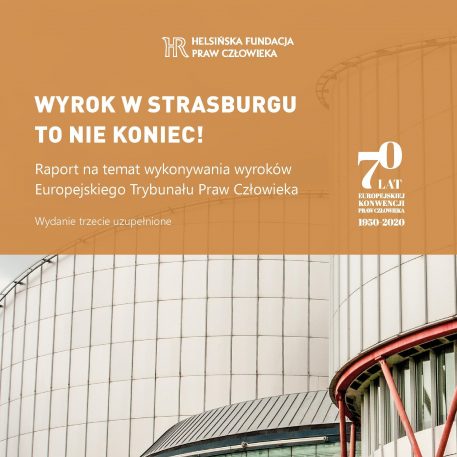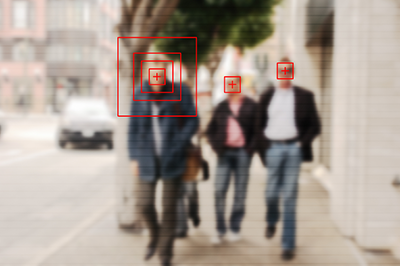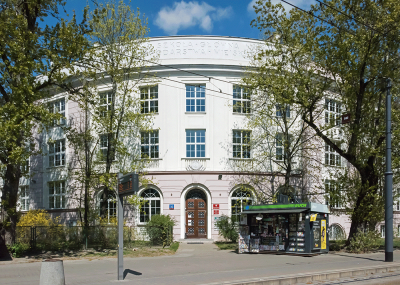
This year marks the 70th anniversary of the European Convention on Human Rights and Fundamental Freedoms, which was signed on 4 November 1950 in Rome.
The Convention guarantees everyone’s fundamental rights and freedoms, including freedom of assembly, thought, conscience and religion, the right to liberty and security of person, the prohibition of discrimination and the prohibition of torture and inhuman or degrading treatment. It forms the basis of decisions of the European Court of Human Rights, which deals with applications brought against members of the Council of Europe. The judgments of the Strasbourg Court play a pivotal role in the development of human rights standards in Europe.
To celebrate the 70th anniversary of the Convention we publish the latest release of our report on the execution of judgments handed down by the European Court of Human Rights. We take advantage of this year’s anniversary to look at the changes that have followed those judgments and consider what steps the authorities should take to prevent similar violations of human rights and freedoms in the future.

Conclusions of the report:
- Many judgments issued against Poland which address important aspects of the protection of our rights and freedoms (such as personal liberty, the prohibition of torture, inhuman or degrading treatment or punishment, right to respect for private and family life, freedom of speech or the right to a fair trial) are still considered as non-executed by the Council of Europe’s Committee of Ministers.
- Currently, 28 leading cases are under the supervision of the Committee of Ministers of the Council of Europe;
- On average, it takes six years and two months for Poland to fully execute a judgment made in a leading case.
- The Czech Republic, Denmark and Norway are the European leaders of the execution of ECtHR judgments.
- The countries with the worst track record in this area are Russia, Turkey and Ukraine.
- Unfortunately, Poland’s performance in the execution of ECtHR judgments is worse than that of most of its neighbours.
- The Czech Republic, Lithuania, Germany and Slovakia have recorded a higher ratio of executed judgments.
- As mentioned above, Russia and Ukraine have successfully executed a lower percentage of “their” judgments than Poland.
A Strasbourg judgment is not the end
Following the delivery of a judgment by the European Court of Human Rights, the Council of Europe’s Committee of Ministers takes on the supervision of the judgement’s execution. It is the Committee that receives national authorities’ action plans in which they present the measures implemented to execute the judgment at the general level, such as legislative changes, changes in the practice of individual government bodies, educational or awareness-raising activities. These measures aim to prevent similar infringements in future and thus reduce the number of applications submitted to the Court on the same subject. Once the action has been implemented, a national authority submits a report to the Committee, requesting that the judgment be declared enforceable. Based on the authority’s report, the Committee of Ministers decides to close the case, or obliges the state to initiate additional measures. In the course of the Committee proceedings, communications may also be submitted by non-governmental organisations.
The unresolved problem of non-executed judgments
The recently updated report presents many ECtHR judgments relevant to human rights and freedoms that are yet to be fully implemented by national authorities. Notably, the Committee of Ministers currently supervises Poland’s execution of 90 judgments of the Strasbourg Court. These non-executed judgments concern a variety of important issues such as the prohibition of torture, inhuman or degrading treatment or punishment, the right to a fair trial, personal freedom and freedom of expression.
The report focuses on ECtHR judgments delivered in recent years. It was emphasised that according to the Council of Europe’s Committee of Ministers, Polish authorities are yet to take measures sufficiently implement the ECtHR judgment of July 2015 entered in the case of Rutkowski v. Poland, which concerns the excessive length of court proceedings. The Foundation shares the view that this problem has not yet been solved and that the statutory complaint against the excessive length of proceedings has not been effective enough. It was also noted that in recent years the Committee has taken a particular interest in the absence of effective action to enforce judgments on access to legal abortion (R.R. v. Poland, Tysiąc v. Poland, P. and S. v. Poland).
Next Committee’s meeting
As early as in December 2020, the CoE Committee of Ministers will once again review Council of Europe members’ implementation of the guidelines laid down in Strasbourg judgments. This time, the Committee’s agenda will include the judgment of Al Nashiri v. Poland, a case concerning juvenile justice proceedings and placement in a youth detention institution.


